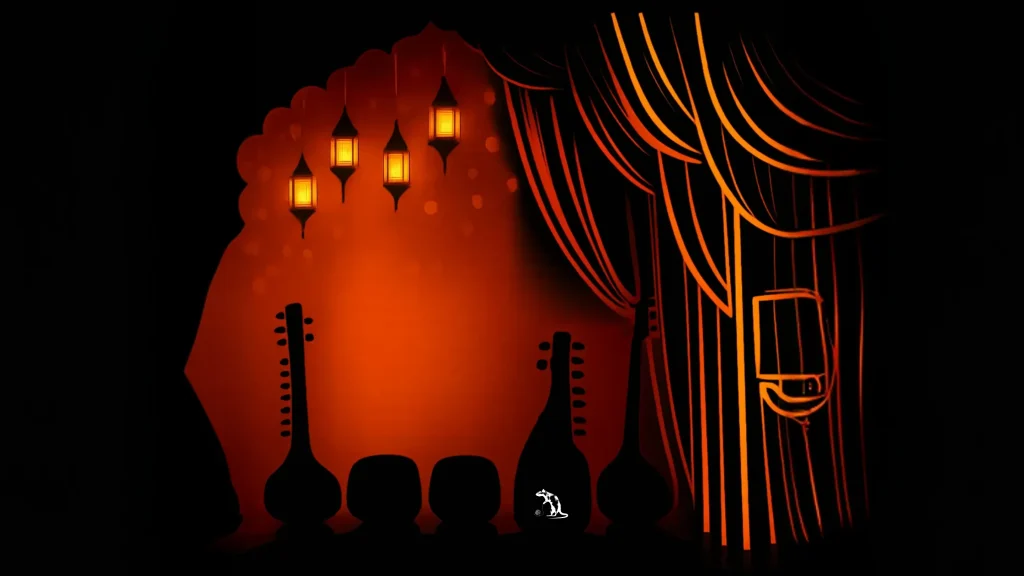Mukbang, Morality and the Modern Hunger
Welcome to the 21st Century! A world where you can witness brutal starvation on one side or, with a simple scroll can entertain yourself by watching someone trending for gluttony on the other.
We often think that we are living in a relatively peaceful time, yet perhaps we fail to realise that peace only belongs to those who can afford it. Beyond the comfort of our homes and the apparent ‘connectivity’ of the world we perceive to have thanks to social media, people still fight hunger and deprivation. In such a world, the phenomenon of Mukbang exists in which individuals record themselves consuming an enormous quantity of food, accompanied by the presence of a variety of sounds that make the experience more holistic. It forces us to confront an uncomfortable paradox: Is it morally right to indulge in excess consumption of food while millions starve?
Ever since mukbang originated in South Korea, it has become a widely popular form of entertainment. It has helped to foster a culture that has transformed the act of eating, a basic necessity, into an engaging exhibition of overindulgence. From fast food to traditional cuisines, it offers everything including visual appeal to the sheer quantity of food.
What was once an act of nourishment and fulfillment has now become a race for profits and fame. Perhaps, you might say that I am overthinking — and perhaps I am, I do indeed have a persistent habit of overanalyzing and overthinking, a habit I am not so fond of — and argue that it is just harmless ‘entertainment’.
But, how can it be simply ‘entertainment’ when it has glorified gluttony into an art form? Whereas people in various parts of the world, such as Gaza and Congo, struggle for survival, the internet applauds those who eat unhealthily and way beyond their needs. The subtle irony is that you don’t even have to look far. Just look around you. You will witness how hunger resides in the very streets we live in and walk on every day.
The consequences go beyond morality, splitting into various dimensions of our existence. Physically, this lifestyle encourages habits that nurture long-lasting harm to those who create such content as well as to those who consume. With obesity, eating disorders and digestive issues being at the top of the list. It is important to note that these issues are avoidable if we choose not to engage in such acts.
While psychologically, it offers escapism. The way they eat and the soothing noises they make often feels like a lullaby while simultaneously offering us a refuge from the reality we all dread. Nothing comes in between our screens and our ability to numb our feelings of stress and loneliness through someone’s overconsumption-that we ourselves can’t afford. Just like many forms of entertainment, mukbang has become a way to avoid reality. It rather amplifies our loneliness as it gives us the sense of a virtual eating partner, making interacting with people harder and less of an option.
Beyond the physical and psychological impact, it targets something deeper. It stimulates spiritual detachment. Not everyone can afford to eat from restaurants or order takeout all the time, especially amid the rising inflation and an ongoing economic crisis. It breeds quiet resentment and distorts our sense of ‘normal’. Is it not normal for me to eat simple home-cooked meals more than I eat from a restaurant? Or eat out once a month? Or does it beg the question that I am not cool or trendy enough? Is it odd if I give back to my community instead? Mukbang has truly revolutionised the very meaning of nourishment-perhaps it won’t be wrong to say that it has commodified food.
What’s left to consider is: who is accountable for giving mukbang the ability to dictate our lives? It is a complicated question — are the creators to blame for choosing this medium of entertainment or the millions of viewers who fuel it?
The irony is, I myself have watched them for a long time and, unknowingly, have been part of the problem. Yet now I can’t help but question their morality as it has made me feel that having a meal three times a day is simply not enough.
You might think that Mukbang is not such a big deal. But the thing is that it is a symptom of a larger problem: our society’s relentless obsession with consumerism and the never-ending want for more. We have turned occasional luxuries into everyday expectations, guilt-tripping everyone and anyone who doesn’t match up to these standards- a hollow standard that translates happiness as excess consumption.
But the truth is: it is okay for you to rest and eat out. It is okay for you enjoy the simplicity of life, but perhaps best not to romanticise gluttony. The key is balance. In this world built on trends perhaps the most radical act in today’s age is to just step back. Choosing to normalise consuming consciously, wanting less and eating simple foods. Because sometimes, doing nothing at all can be the greatest moral act.



